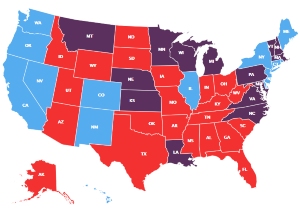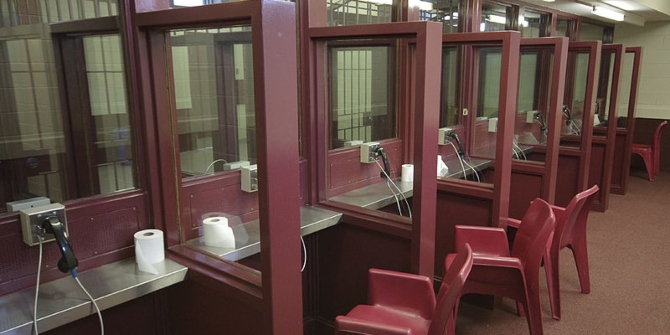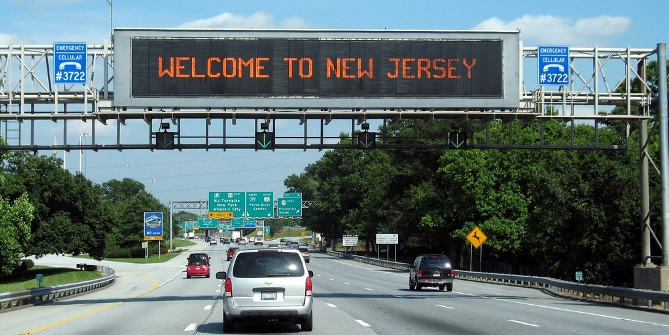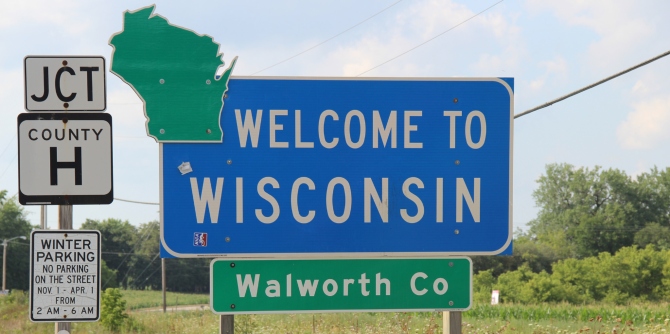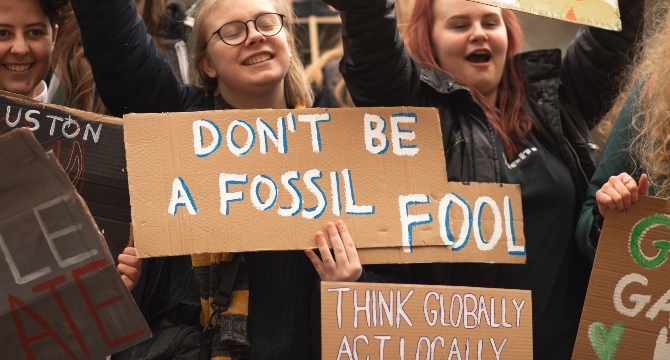 COVID-19 has exacerbated social inequalities in North America with unemployment rising to record levels. Housing security has also been severely impacted by the crisis. Cynthia Puddu discusses the links between housing affordability and potential solutions to this social crisis, such as a Universal Basic Income and the need to treat housing as a human right.
COVID-19 has exacerbated social inequalities in North America with unemployment rising to record levels. Housing security has also been severely impacted by the crisis. Cynthia Puddu discusses the links between housing affordability and potential solutions to this social crisis, such as a Universal Basic Income and the need to treat housing as a human right.
The economic ramifications of public health measures employed to reduce the spread of COVID-19 will lead to an added crisis of increasing homelessness across North America. Lack of affordable housing options due to rising rental costs and stagnating wages have already led to housing instability and increased homelessness in the past several decades. Now, the economic realities of COVID-19 have increased the risk of housing instability for millions of individuals across Canada and the United States.
Before the pandemic, approximately 20.8 million households in the US and 1.7 million households in Canada were severely cost-burdened – meaning they spent more than 30 percent of their incomes on rent and utilities. Job losses (Figure 1) incurred during the pandemic will result in many individuals not being able to afford monthly rents or mortgage payments. The increased risk of evictions or housing foreclosures resulting from these job losses will significantly add to the homeless crisis. One need only view a recent CNN video of an eviction to understand the heartbreaking reality that many face because of financial hardships. While financial aid through the Coronavirus Aid, Relief, and Economic Security (CARES) Act and the Canada Emergency Response Benefit (CERB) have been made available, these measures are not sufficient to address the long-term economic impacts of the COVID-19 crisis.
Figure 1 – Nonfarm employment August 2019- November 2020

Source: BLS
Homelessness in the pandemic
Measures taken to address the economic instability contributing to homelessness must focus on the systemic issues that have caused people to become homeless. The ability to create safe, affordable housing for all individuals must be addressed during this pandemic and in the long term. To create change, we need to focus on the fact that homelessness will not decrease if we do not address increasing systemic inequalities. To do this, we must adopt a human rights-based approach to housing that legislates a right – meaning that it creates a legal obligation – to provide adequate housing for all individuals. According to a recent report of the UN Office of the High Commissioner for Human Rights, this approach can include increased eviction protection measures and a move away from the commodification and financialization of housing.
Evictions due to an inability to pay rent is a common cause of homelessness and has been exacerbated due to the pandemic. It is imperative that regional governments and municipalities prohibit evictions due to an inability to pay rent due to reasons related to COVID-19. Early in the crisis, governments in the US and Canada announced moratoriums on residential evictions; however, these moratoriums ended within months of the initial public health lockdowns. The inability to pay rent may last beyond 2020 for many. According to Leilani Farha, the UN Special Rapporteur on the right to adequate housing, this moratorium on evictions should extend beyond the current pandemic crisis and be included in right to housing legislations as forced evictions are a violation of international human rights law.
To decrease the risk of evictions, immediate rent freezes for the duration of the pandemic and a reasonable time after must be implemented. Lack of rental income because of rental freezes can become a burden for residential landlords. The financial relief packages that have been made available in Canada and the US do not include monetary relief for residential landlords. To assist landlords with the financial burden of rental freezes, the UN Special Rapporteur also recommended that governments should provide compensation to landlords as part of financial relief packages.

Photo by Cindy Tang on Unsplash
While evictions increase the risk of homelessness for renters, it’s also the case that many homeowners run the risk of foreclosure on their homes if they cannot keep up with mortgage payments. To assist these homeowners during the pandemic, mortgage forgiveness policies must be implemented during the pandemic and for a reasonable time beyond. Along with rent freezes, mortgage forgiveness and compensation for landlords, economic relief packages must provide monthly supports for individuals who have lost their incomes because of the pandemic. Financial relief packages have been made available to citizens through the CARES Act in the US and the CERB in Canada. However, these are short-term assistance programs that will not help individuals suffering long term job losses because of the pandemic.
Short term solutions
These assistance programs have specific eligibility requirements that make them only available to individuals that were previously employed. They do not cover all types of employment such as jobs in the gig economy, nor do they assist essential workers such as grocery store employees whose income may not cover the cost of maintaining housing and other necessities of life. The implementation of these programs has also proved difficult in the United States. Because of the high volume of applications for unemployment insurance, many individuals have faced long lines and delays in processing applications leading to a lack of income for many months.
To provide fast, barrier-free income relief to all citizens, scholars and activists have suggested implementing a Universal Basic Income (UBI) that would provide all citizens with the income needed to maintain housing and other necessities of life. The pandemic is an ideal time to implement a UBI on a large-scale level, at least on a short-term emergency basis, to deal with the economic ramifications. Rather than extending current relief measures that contain barriers for many citizens, money from those programs can be moved to fund an emergency UBI that would provide unconditional income to all citizens. The emergency UBI funds can be rolled in the same fashion as the one-time Economic Impact Payments implemented early in the pandemic. An emergency UBI would significantly lower the risk of foreclosures and evictions and ensure individuals do not lose their housing because of COVID-19. If successful, the emergency UBI could clear the path to apply a UBI as a long-term solution to housing instability.
Long term solutions
For long-term solutions to housing instability, we must address housing affordability in Canada and the US. Because housing has become commodified, with homes seen as an investment or a source of income, many households experience high rates of residential instability. According to Manuel Aalber, the financialization and commodification of housing is a consequence of government policies that have shifted the responsibilities of housing away from government and towards a market-based system with fewer regulation and intervention. Financialization affects homeowners and household debt along with the rental market. Across the world, financialized investors have been purchasing social housing properties and other rental properties as forms of investments. Social housing is also becoming financialized with social housing associations participating in financial markets. When housing is commodified, the purpose of housing as a human right is eroded, and we lose sight of people and their well-being.
Ultimately, to reduce the social and health inequities which have been exacerbated during this pandemic, we must treat housing as a human right and ensure everyone has access to safe, affordable housing. We can do this by introducing progressive laws that legislate housing as a human right. For example, the Government of Canada passed the National Housing Strategy Act, which legislated that housing be recognized as a human right. However, for national right to housing legislations to be effective, they must be legislated at provincial or state and municipal levels of government. This will ensure that rights-based approaches to policy and decision-making regarding housing are used.
In order to create change in the long term, we need to recognize that homelessness will not decrease if we do not address the systemic inequalities that have been created by the ruling class. If the financialization of housing as one of the causes of structural barriers to homelessness is not addressed, we will continue to see the number of individuals experiencing homelessness rise. If we continue with prioritizing a market economy in housing rather than treat housing as a human right, we will continue to increase inequities that have been created by the neoliberal market economy. Just as Canada has successfully done with health care, we must move towards treating housing as a human right rather than a privilege to curb the crisis of homelessness across North America.
Please read our comments policy before commenting.
Notes: This article gives the views of the author, and not the position of USAPP – American Politics and Policy, nor the London School of Economics.
Shortened URL for this post: https://bit.ly/3oGVqGD
About the author
 Cynthia Puddu – MacEwan University
Cynthia Puddu – MacEwan University
Cynthia Puddu, Ph.D. is an Assistant Professor at MacEwan University in Edmonton, Alberta in the Faculty of Health and Community Studies. Her research examines the experiences of homeless youth in downtown Edmonton and how higher-level socio-political systems such as neoliberalism and settler colonialism shape those experiences. Using Institutional Ethnography and community-based participatory research methods, she works closely with homeless youth in Edmonton, sharing their stories of difficulty and success. Cynthia is interested in using her research to work as an ally and advocate for populations that have been historically silenced.


